Paris Olympics, Women’s preview: China looks strongest again, while USA leads way for ‘newcomers’
Five Olympic champions will try to win again in the women’s events in Paris, where China once more fields the strongest team. Conversely, four nations that have never had an athlete on top of the women’s podium are among those going for gold – United States, Norway, Egypt and Australia.
China has won 32 Olympic weightlifting gold medals this century, of which 17 went to women. All three of China’s women in Paris topped their respective rankings, compared with two of the men.
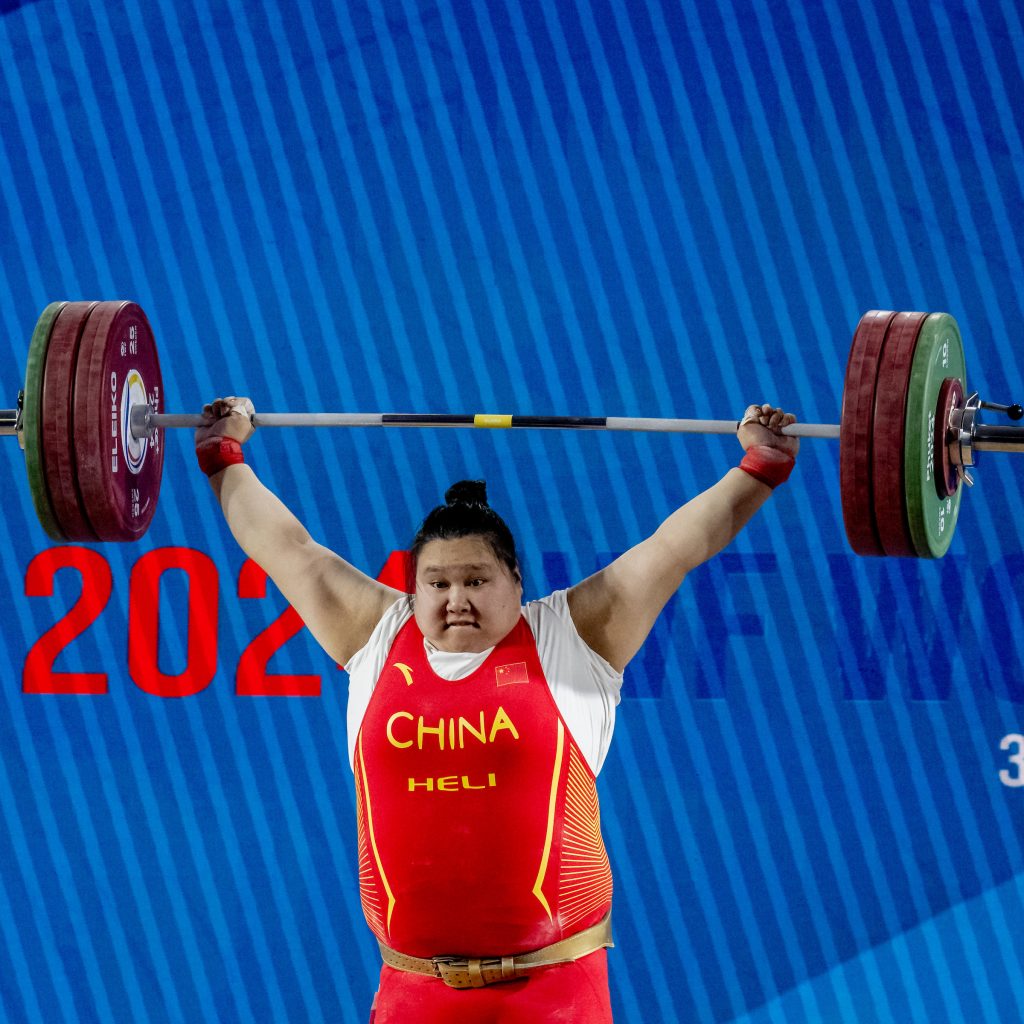 Li Wenwen (CHN)
Li Wenwen (CHN)
Super-heavyweight Li Wenwen is the strongest favourite in all ten weight classes for both genders despite having suffered an elbow injury during qualifying. It kept her out of the Asian Games and the Qatar Grand Prix before she returned, more than six months later, to win decisively at the World Cup in Phuket, Thailand in April.
Li finished 37kg ahead of Emily Campbell from Great Britain when she won in Tokyo, and is ranked 29kg clear of her nearest rival in Paris qualifying, Park Hyejeong from Korea.
The champion is taking nothing for granted. “I still have room for improvement,” said Li, who rated her World Cup victory “one of my best performances during these past four years”.
Li is likely to make the last lift in Paris, where five days of competition end on August 11, the final day of the Olympic Games. This time the women, rather than the men, are scheduled last.
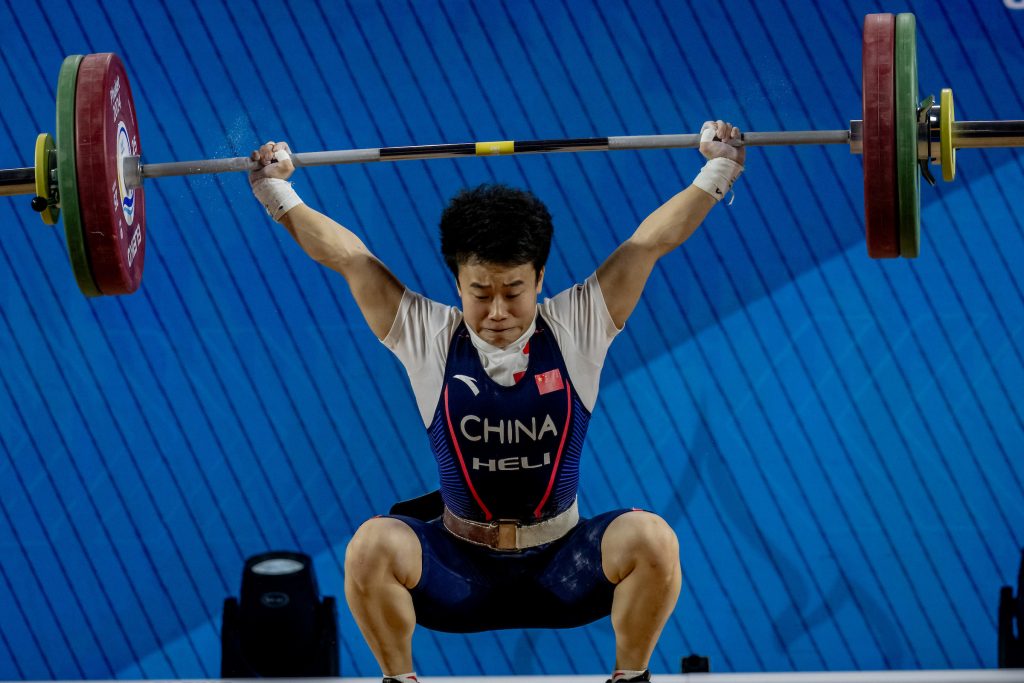 Hou Zhihui (CHN)
Hou Zhihui (CHN)
At the other end of the scales, about 100kg lighter than Li, is Hou Zhihui. The Tokyo 49kg champion left her best till last in qualifying, overtaking team-mate Jiang Huihua with her final lift at the World Cup. She set a snatch world record there and is ranked well clear of three contenders on 200kg – Mirabai Chanu from India, Surodchana Khambao from Thailand and Jourdan Delacruz from the United States.
Luo Shifang, who did not compete in Tokyo, was another world record breaker in Phuket. Her 248kg total in the 59kg category was up 18kg from her first qualifying effort. Two Olympic champions are among the other contenders at this weight, Maude Charron from Canada and Kuo Hsing-Chun from Chinese Taipei.
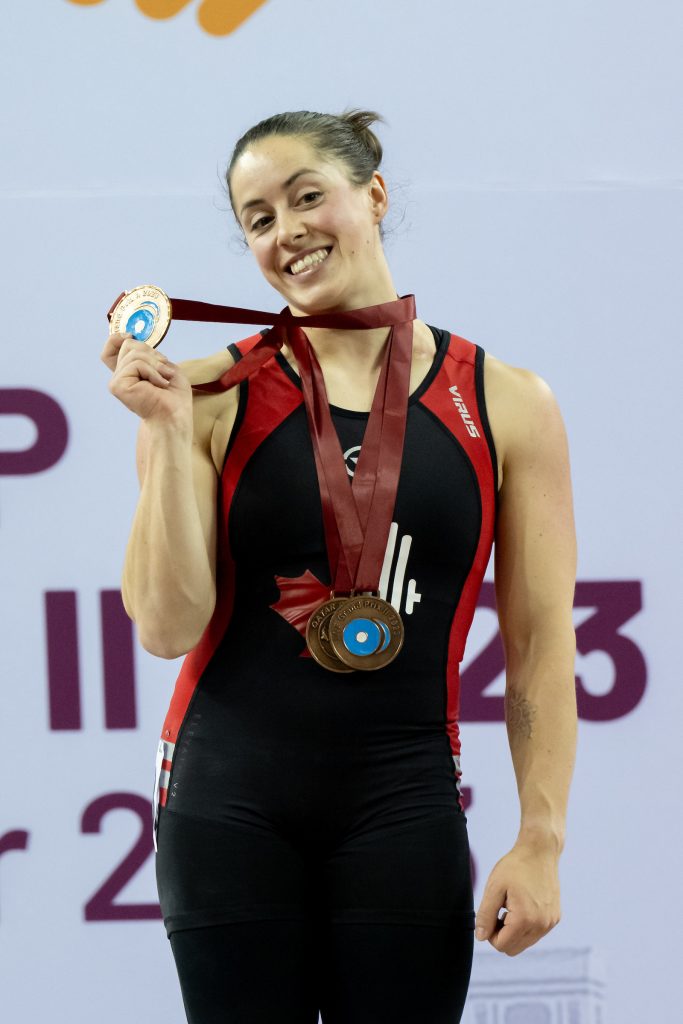
Maude Charron (CAN)
Charron, who put on hold a new career in the police force to continue training for Paris, won at 64kg in Tokyo. “One of the main reasons why I decided to do another Olympic cycle is so I can get my family there in the stands, to watch me on the biggest stage in the sport,” said Charron, who like everybody else competed in an empty auditorium in Tokyo.
Her improvement at the lower weight gives 31-year-old Charron a good chance of a medal. Kuo, who won at 59kg in Tokyo, has not matched her 2021 performance during qualifying.
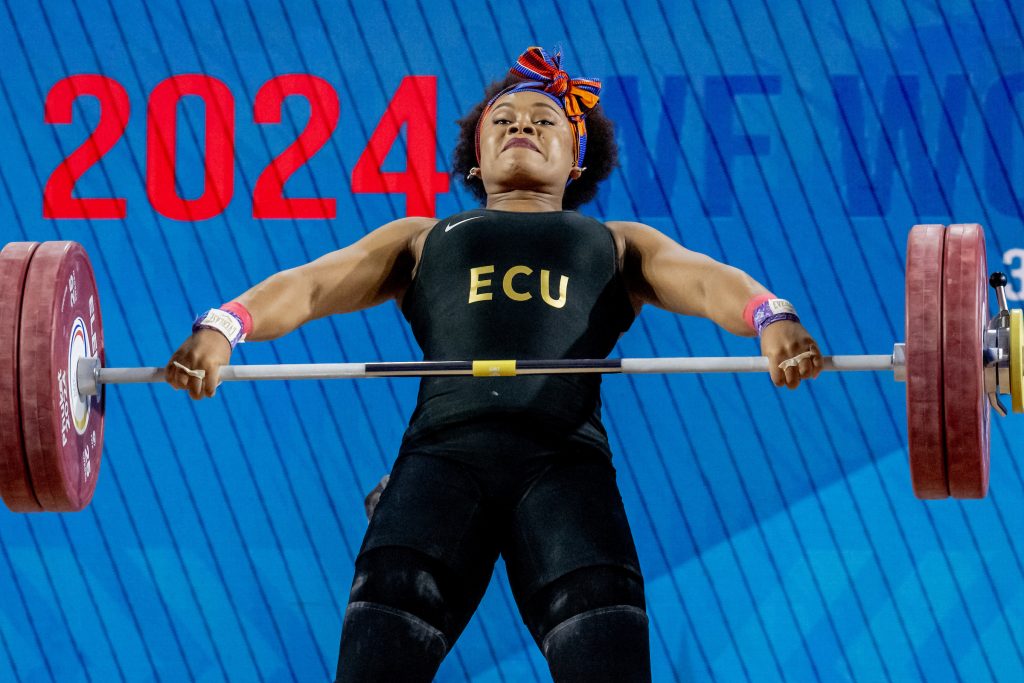 Neisi Dajomes (ECU)
Neisi Dajomes (ECU)
The fifth Olympic champion in Paris is Neisi Dajomes from Ecuador, who won at 76kg in Tokyo. She heads the rankings in the ultra-competitive 81kg category in which athletes from four continents are the top contenders.
Solfrid Koanda from Norway, who was working as an electrician at the time of the Tokyo Games, attempts to become the first woman from Scandinavia to win Olympic weightlifting gold. She has won six times since 2021, mostly at 87kg but always lifting underweight. If she can match her 87kg numbers in the Olympic weight class Koanda will be difficult to beat.
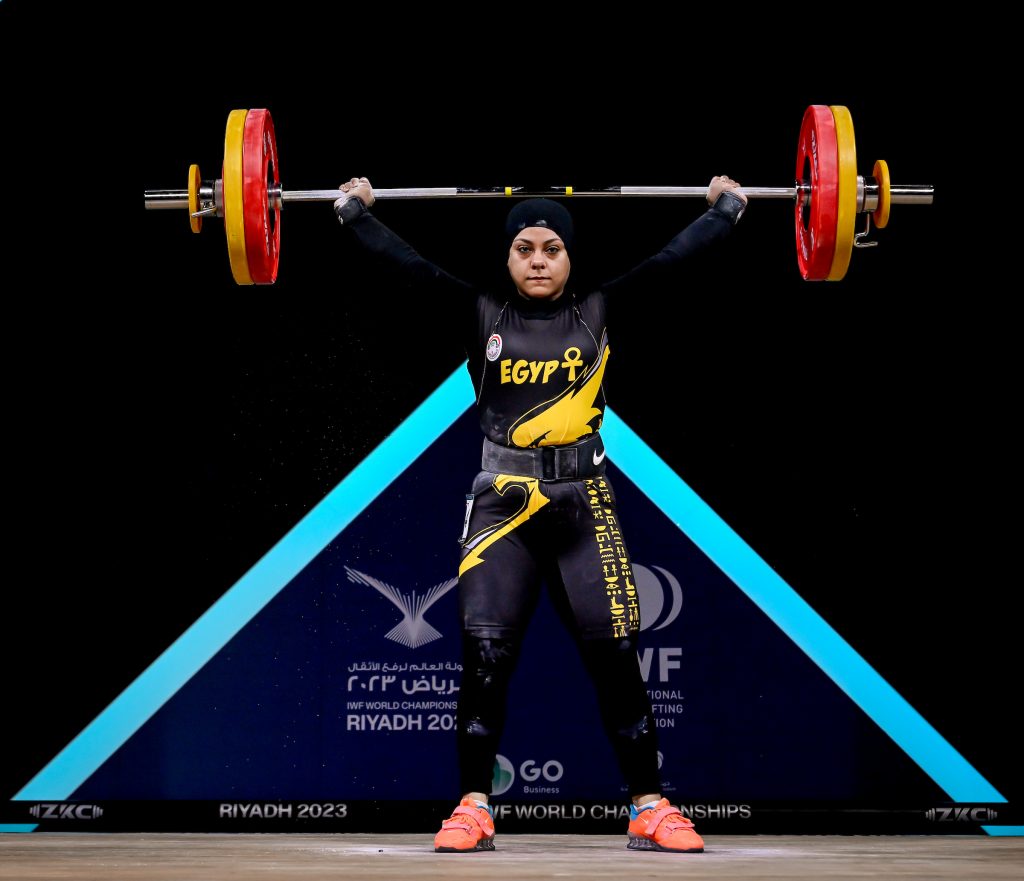 Sara Samir (EGY)
Sara Samir (EGY)
A third strong contender is Sara Samir from Egypt, a bronze medallist at a lighter weight in Rio eight years ago who is seeking to become the first female champion for Africa and the Arab world. Eileen Cikamatana from Australia, which has not had an Olympic weightlifting champion for 40 years, is ranked marginally behind Dajomes, Samir and Koanda.
After a series of injuries and a timing mishap that nearly led to failure in qualifying, Dajomes is more than happy simply to be in Paris.
In the first half of last year Dajomes had a ruptured shoulder tendon, then a wrist injury. Serious knee problems kept her out of two qualifiers in the latter part of 2023, and when she returned at the Pan American Championships in Venezuela in February she failed to make the total she needed because of a mix-up over the timing for her final attempt.
“This was the first time that I experienced something like this, the total desertion of myself and everything I had achieved,” Dajomes said. “The first two months of this year were the hardest. It cost me days of crying from pain. But I knew I could still put up a fight, and my sister Angie would not let me throw in the towel.”
It all came good at the World Cup in April, where Dajomes overtook team-mate Tamara Salazar to finish top of the rankings. “I can’t think of anything other than enjoying these Olympic Games,” she said. “I don’t know what will happen after Paris, what I do know is that I love this sport even though it has mistreated me so much. Maybe Los Angeles will wait for me.”
Angie will also be going for a medal. She lifts at 71kg, where she is ranked second behind Olivia Reeves from the United States.
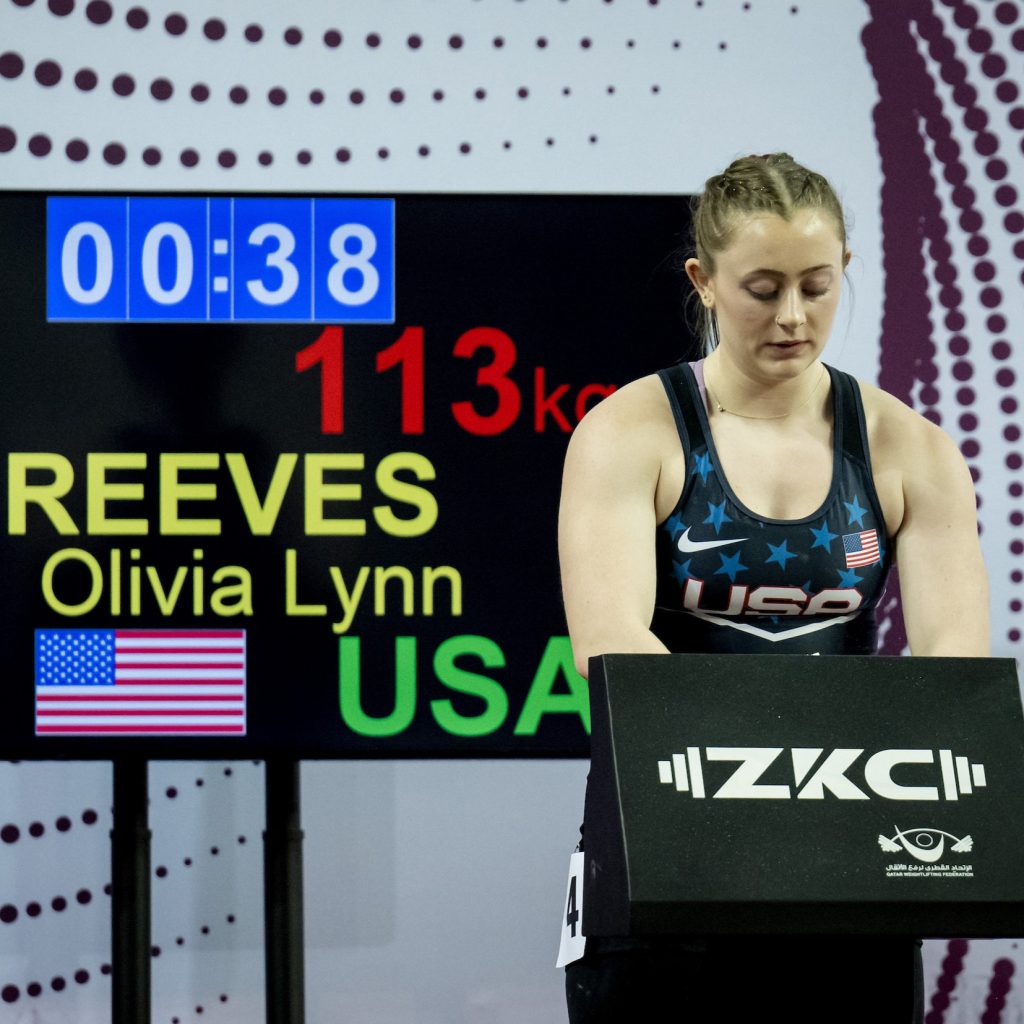 Olivia Reeves (USA)
Olivia Reeves (USA)
Reeves competed in all seven qualifiers and also won at the Pan American Games during a year and a half of consistent improvement.
“I wanted to do all seven,” said 21-year-old Reeves. “It’s fun. For someone age 30 it will be different. I’m taking advantage of my youth, and I’m gaining experience all the time.”
Tara Nott was a gold medallist for Team USA at Sydney 2000 but missed the glory of a gold medal presentation. Nott was promoted from second to first place after a Bulgarian was disqualified for doping three days after the competition.
Delacruz at 49kg and super-heavyweight Mary Theisen Lappen also have medal chances for a USA team that has gained worldwide respect, according to the Tokyo silver medallist Kate Vibert, who was not selected despite qualifying at 71kg and 81kg.
“It’s incredible that I can be top-10 in two weight classes and still not make the Olympics,” said Vibert. “It’s a great reflection of how amazing the sport and team is in the US. The respect for our team throughout this quad has exponentially increased.”
By Brian Oliver
Photos by Giorgio Scala/Deepbluemedia










